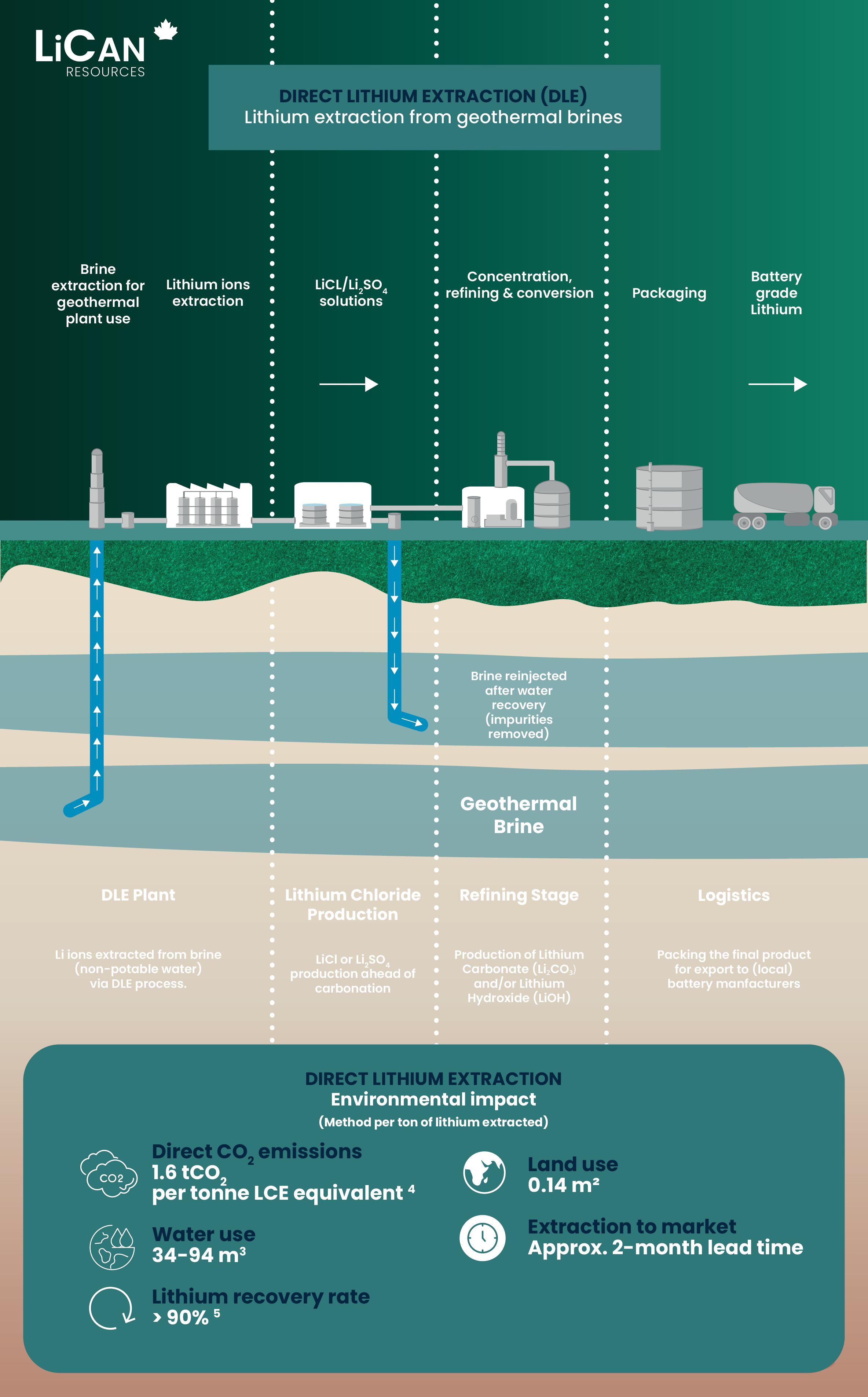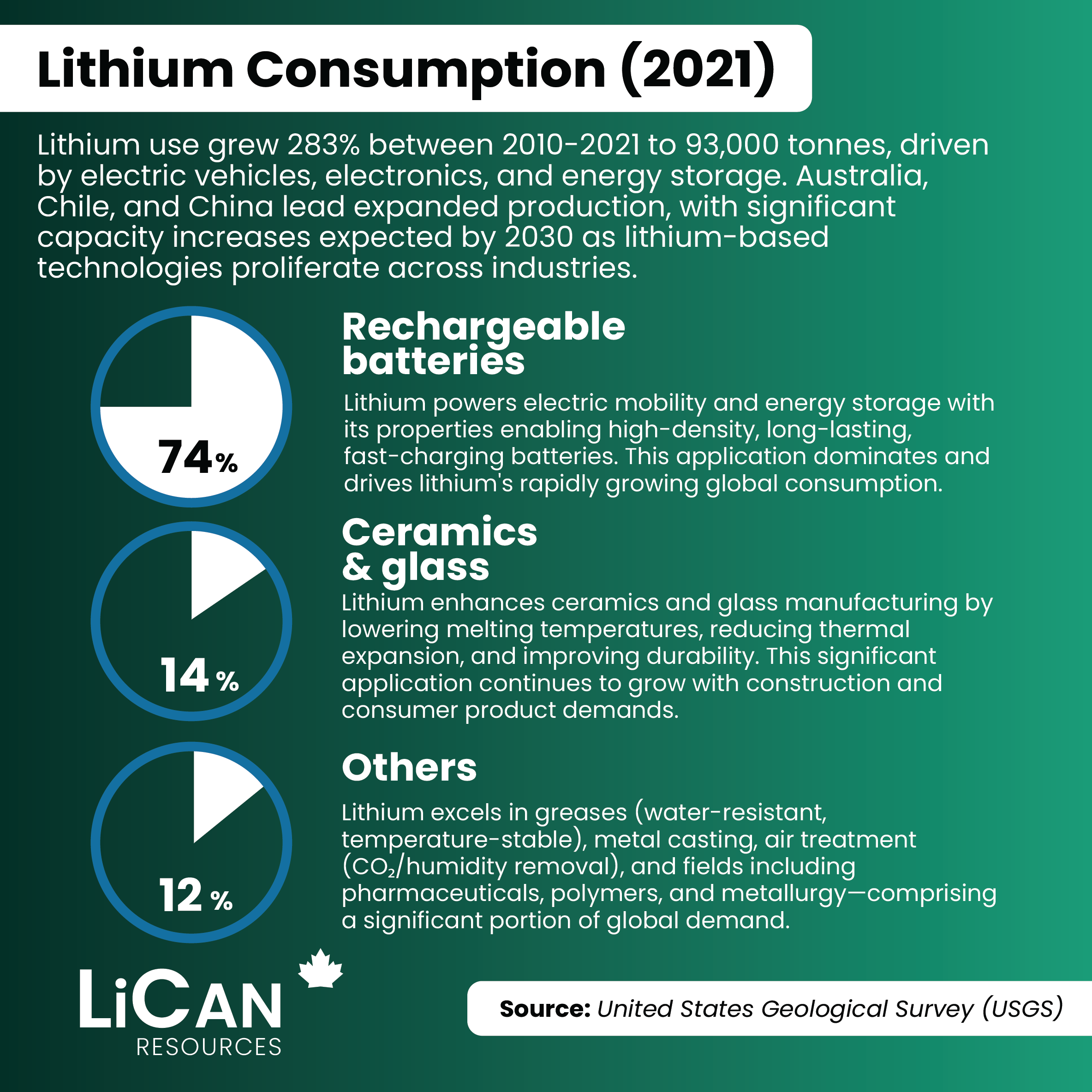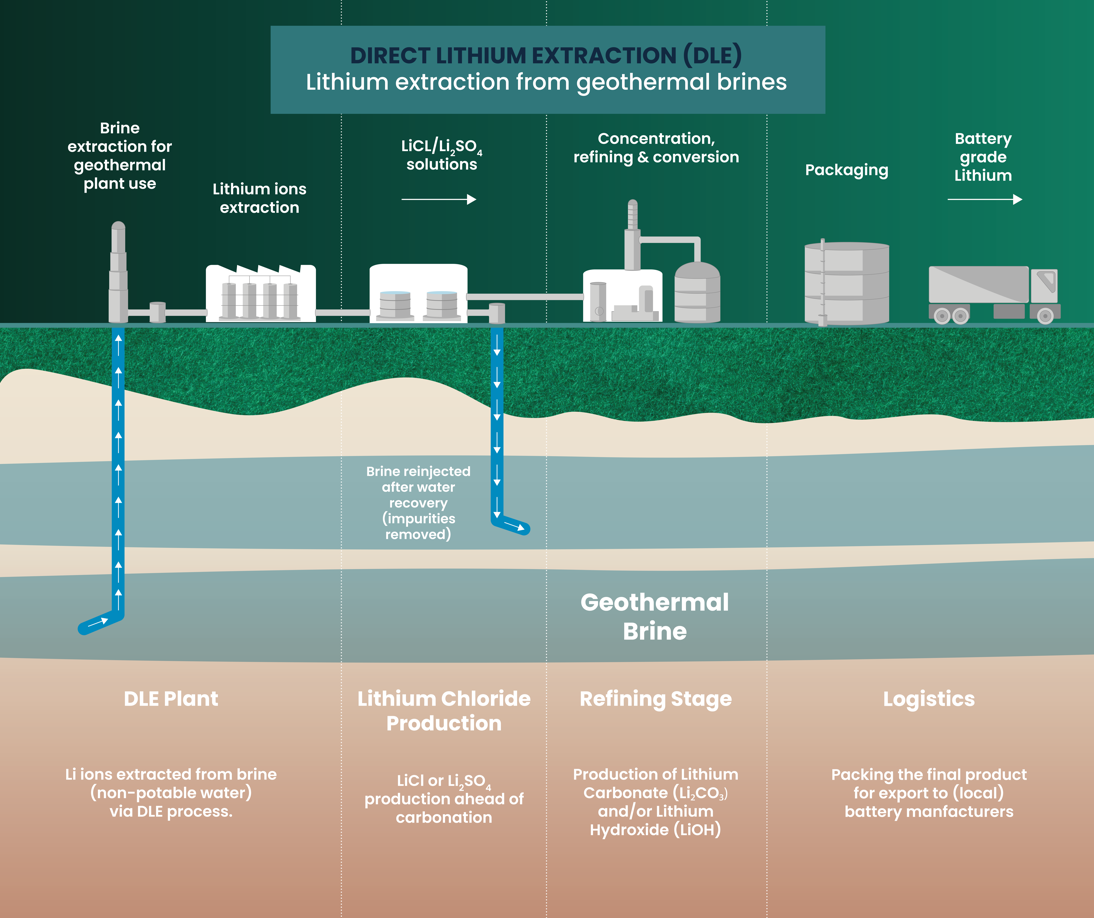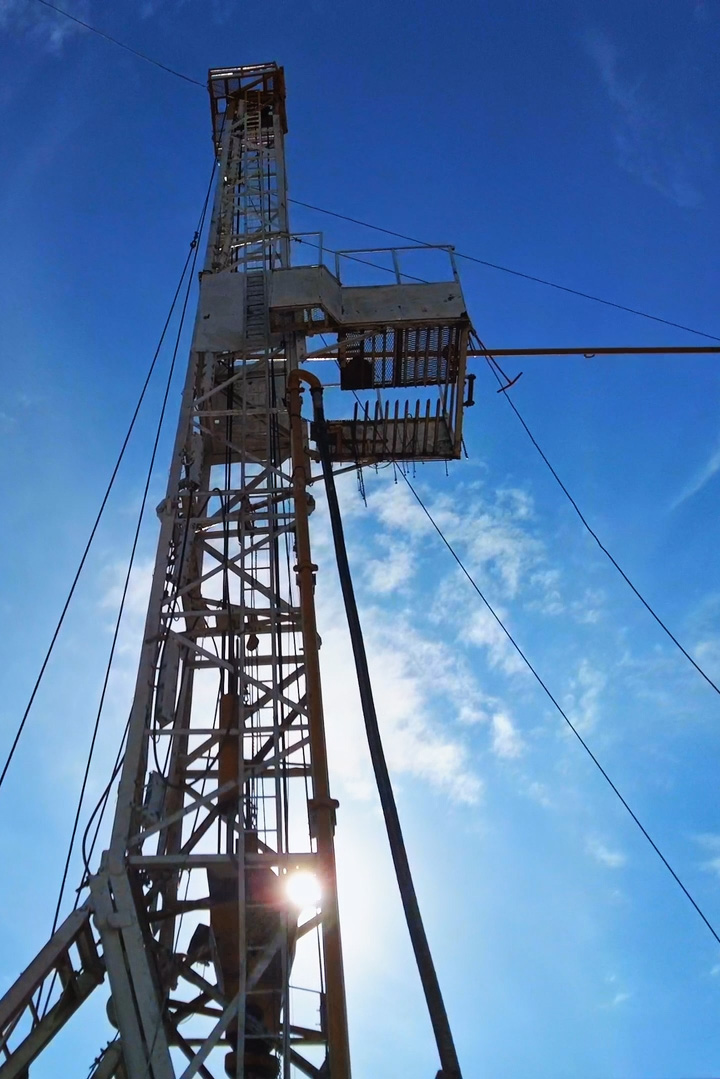Lithium:
Powering
tomorow's energy
Lithium is a crucial element in the transition to renewable energy, enabling the production of high-performance batteries. Its unique properties make it indispensable for energy storage solutions that reduce carbon emissions and fight climate change.
Why lithium matters?
Lithium serves as a fundamental element for a carbon-neutral future. This lightweight metal possesses specific properties that make it valuable for technologies supporting the transition away from fossil fuels. Lithium contributes to several important areas:
Energy Transition
Lithium enables the shift to sustainable energy systems, with its ability to store and release electrical energy efficiently making it central to decarbonization efforts across multiple sectors.
Material Production
It facilitates manufacturing advancements through its use in specialized alloys, glass production, and high-temperature lubricants, creating more durable and energy-efficient industrial products.
Technology development
Lithium helps drive innovation in consumer electronics, medical devices, and aerospace applications where its lightweight and high energy density properties provide significant advantages.
Economic growth
It supports emerging industries and job creation in refining, battery production, and recycling, with lithium supply chains becoming increasingly strategic to national economies.
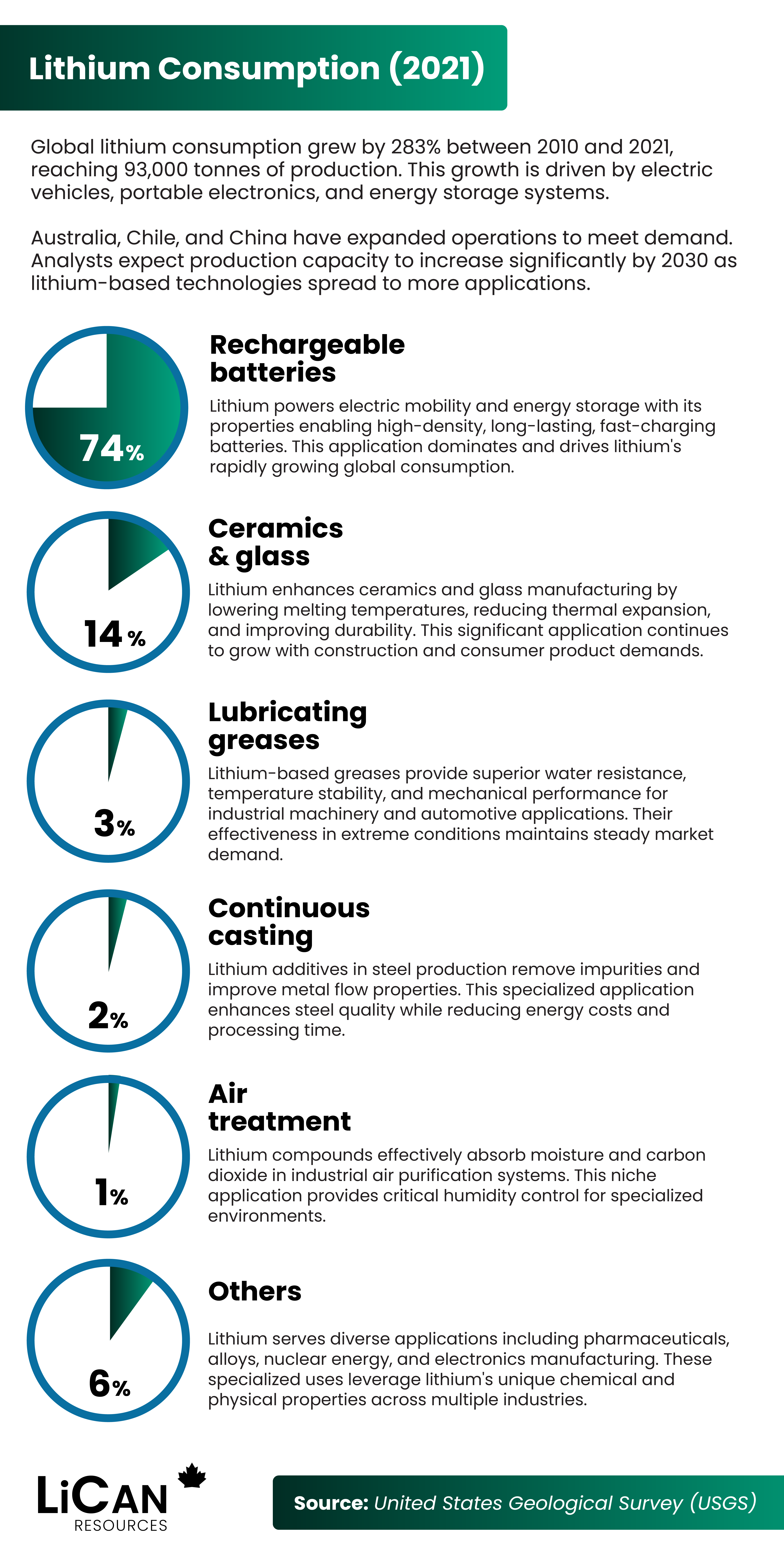
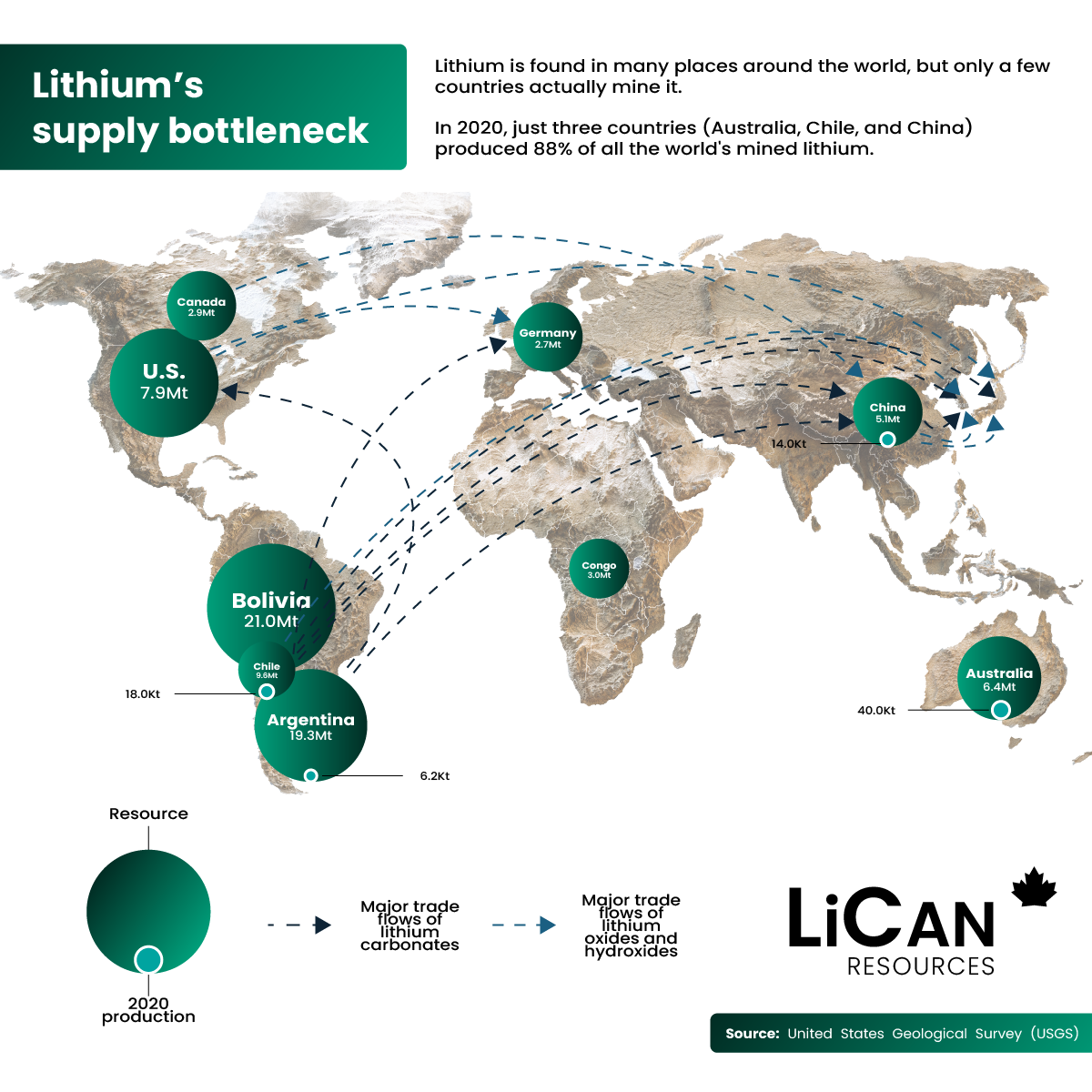
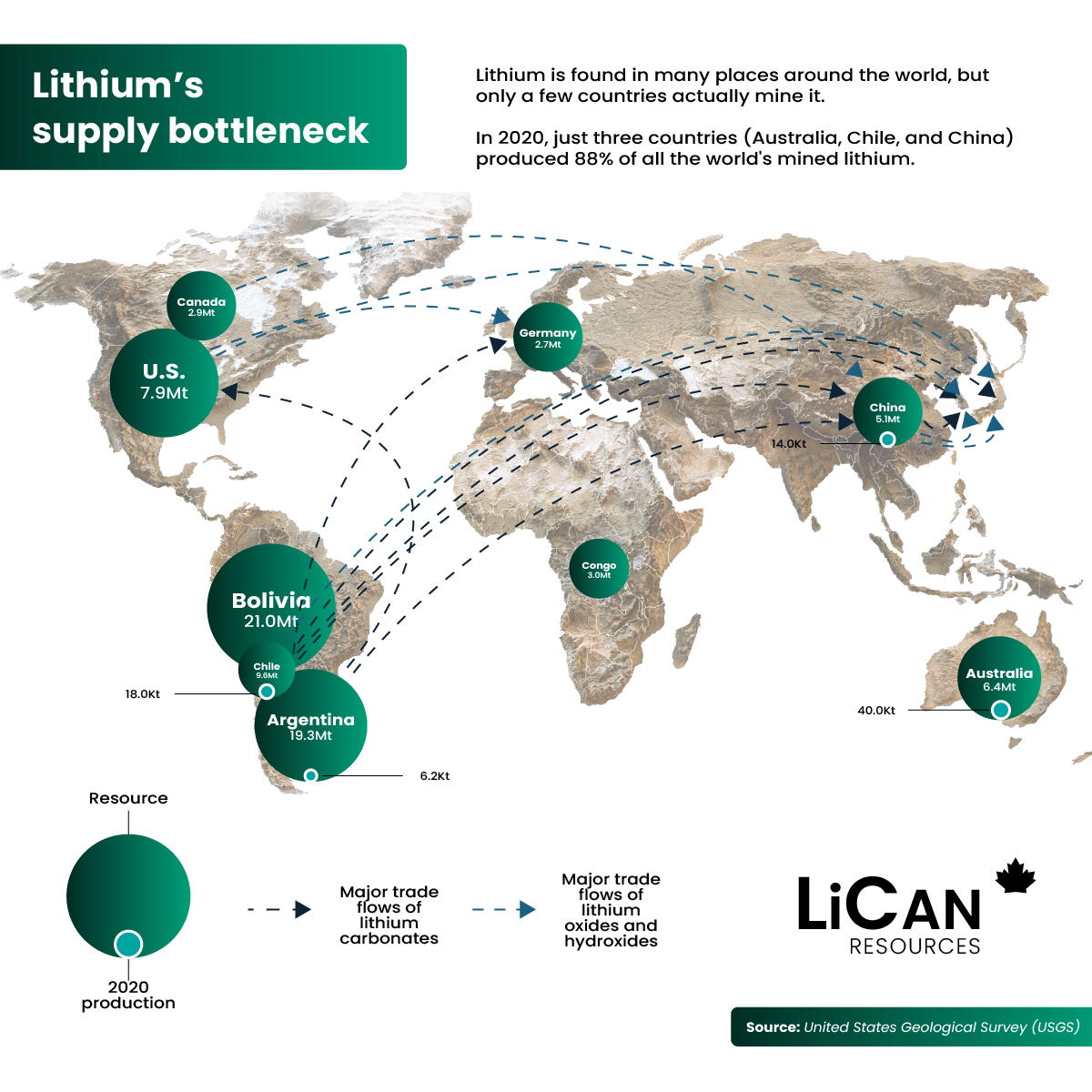
The Lithium challenge
Lithium is not only crucial for rechargeable batteries but also plays a vital role in various industries. Its unique properties make it an essential component in ceramics, glass, pharmaceuticals, and polymers, driving innovation across multiple sectors.
Meeting global demand
Lithium demand is projected to increase by over 40 times by 2040 (IEA). Current production capacity represents just a fraction of what's needed for widespread EV adoption and renewable energy storage.
The environmental imperative
The energy transition cannot succeed if its foundation relies on environmentally harmful practices. Sustainable lithium production is both ethically necessary and economically essential.
Supply chain vulnerabilities
Hard-rock lithium mining requires complex processing typically done in East-Asian facilities, creating vulnerable, carbon-intensive supply chains. This geographic concentration creates strategic risks for economies and companies.
Economic competitiveness
More efficient lithium production can help make electric vehicles (EVs) and clean energy storage more affordable. Speeding up the process and lowering production costs ultimately benefit consumers seeking to participate in the energy transition.
Direct Lithium Extraction (DLE): The future of lithium production
DLE represents a new approach to lithium production that combines innovation with sustainability. It offers the same advantage we see between modern precision medicine and old-fashioned treatments.
Faster
production
Accelerates lithium production timelines from months to days. Meets market demands rapidly to address supply shortages.
Environmental responsability
Reduces water usage by up to 90% compared to traditional methods. Minimizes land disturbance with no need for large evaporation ponds.
